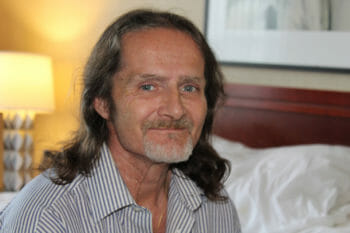
Mark lives with chronic pain. Getting health care while homeless has been vitally important to his well-being.
